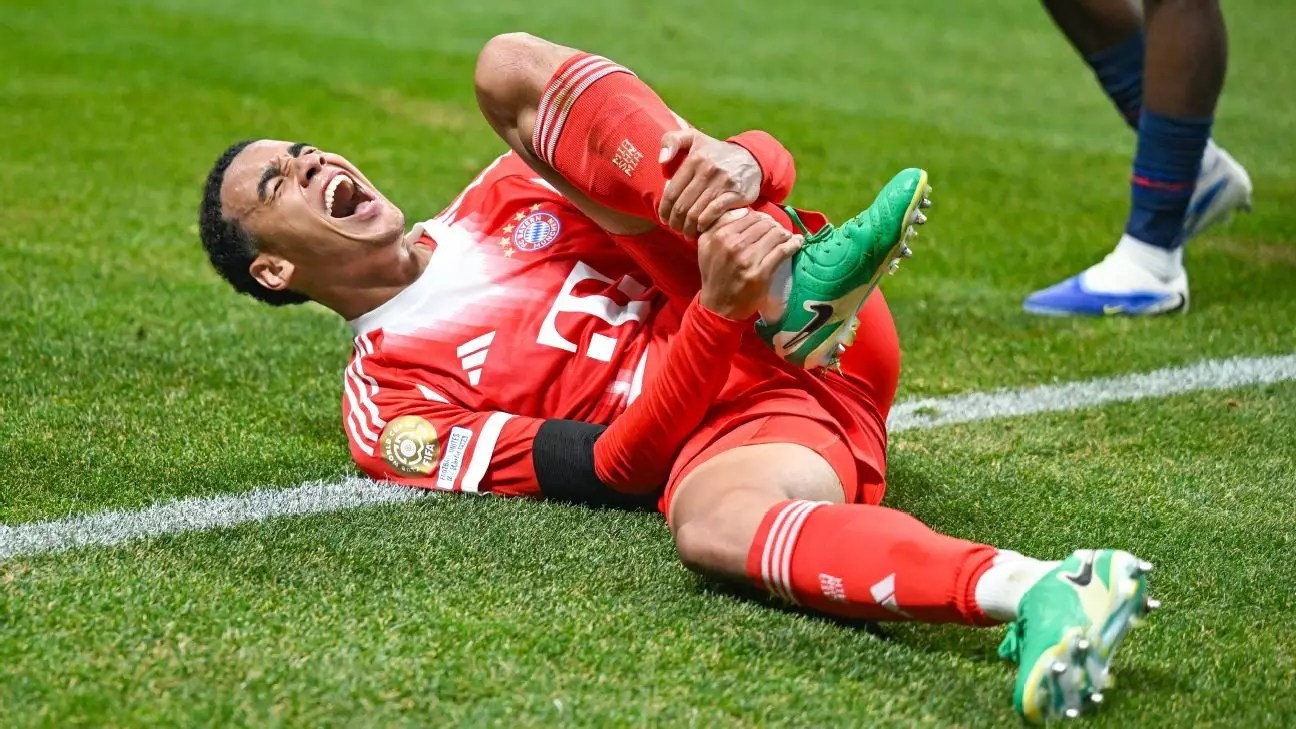High-stakes football matches are often celebrated for their excitement, skill, and entertainment, but beneath the glamour lies a harsh reality: the relentless physical toll on players. Jamal Musiala’s recent injury serves as a stark reminder of how fragile athletic careers can be. Suffering a severe left leg fracture following a collision with a goalkeeper, Musiala’s path to recovery is set to be long and arduous. Such injuries are more than setbacks; they are hits to the psyche, career trajectory, and team dynamics. Athletic brilliance can be abruptly halted by the unpredictability of physical collisions, especially in a game where split seconds decide everything.
The emotional and physical toll of injuries like Musiala’s should not be underestimated. It exposes the dangerous nature of football, where the pursuit of victory can sometimes come at a harsh cost. Players dedicate their lives to their craft, yet their bodies are constantly under threat, often without warning. The trauma inflicted in moments like these highlights the importance of rigorous safety protocols and the need for ongoing innovation in sports medicine. Ultimately, injuries such as Musiala’s are a visceral reminder of how much players sacrifice to perform at the highest level.
The Psychological and Team Impacts of Serious Injuries
Beyond the immediate physical harm, injuries create ripples through team morale and individual mental health. Bayern Munich’s statement emphasizes support and solidarity, acknowledging the player’s pain and the club’s commitment to his recovery. Yet, such injuries often lead to frustrations that transcend the physical, impacting team performance and morale. When a key player like Musiala faces a prolonged absence, it compels coaching staff to reconsider strategies and reshuffle tactics, potentially disrupting team cohesion.
Furthermore, the psychological impact on athletes can be profound. The fear of re-injury, doubts about future performance, and the emotional stress of missing crucial matches all contribute to a challenging rehabilitation journey. Support systems, both psychological and medical, are essential to help players regain not just their physical capabilities but their confidence as well. Musiala’s injury should serve as a wake-up call for clubs to prioritize holistic health, acknowledging that the mental resilience of players is as vital as their physical readiness.
Accountability and Fair Play: The Role of Sportsmanship
The incident also shines a light on the sometimes contentious issue of sportsmanship and accountability in football. Manuel Neuer’s comments critiquing Gianluigi Donnarumma reflect a broader debate about the responsibilities players bear during a game. Football, at its core, is a sport rooted in fairness and mutual respect, but moments of reckless challenge can threaten that integrity. Neuer’s call for more cautious play underscores the importance of respecting opponents’ safety, especially in high-pressure situations that tempt risks.
While Donnarumma’s attempt to retrieve the ball might have been motivated by competitive instincts, it raises questions about the fine line between aggressive play and dangerous conduct. Players must balance their competitive edge with an understanding of their limits—an issue that referees, coaches, and governing bodies need to continually address through stricter enforcement and education. Ensuring player safety should never be sacrificed at the altar of competitiveness, and incidents like these should serve as catalysts for fostering a culture that prioritizes health over hubris.
—
In analyzing the broader implications of this incident, one cannot ignore the inevitable truth: football’s thrill is intertwined with its inherent risks. Recognizing and confronting these dangers head-on will be key to safeguarding players’ futures and preserving the integrity of the game.


Leave a Reply